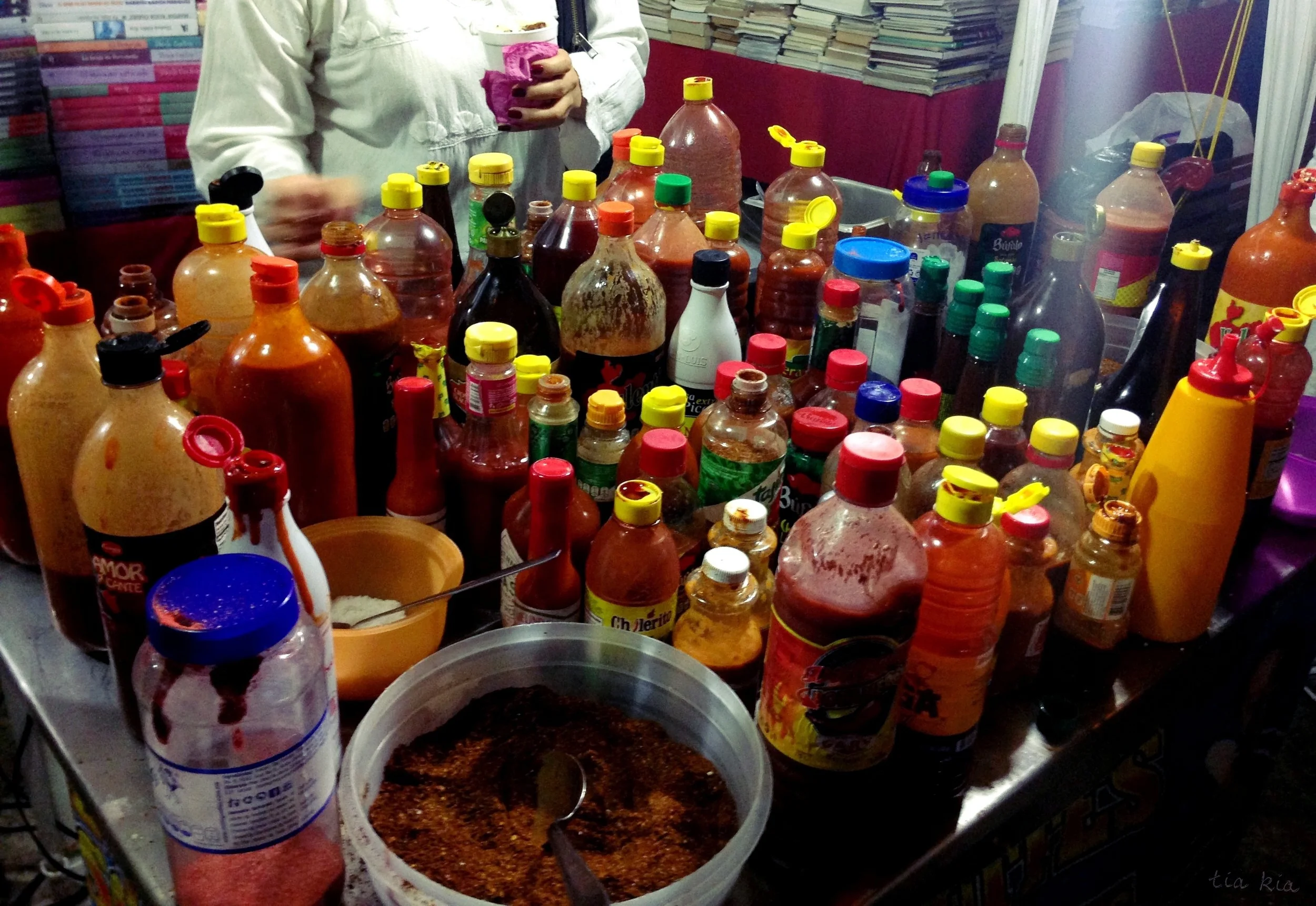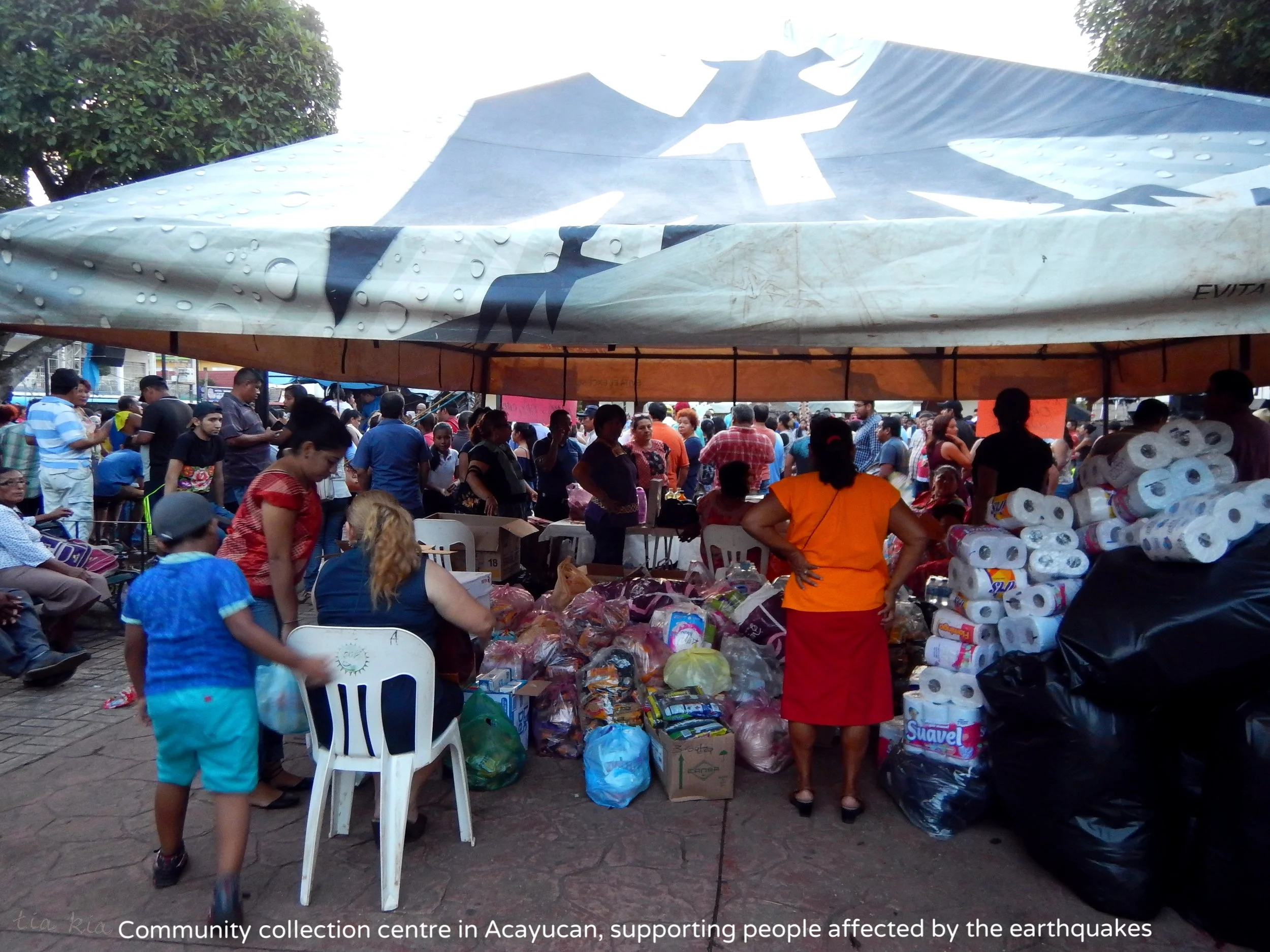Adapting to life in Mexico: 33 new realities of my life
Mexico is an absolutely wonderful country, which I LOVE. One of the great parts of travelling and living in another country, is opening your mind to all the cultural and lifestyle differences between your new country and your home country. Sometimes differences can be mind-baffling to start with, not because they're better or worse, but simply because they're just not what you're used to.
There are a whole range of things that once surprised or even shocked me, but which have now become part of my daily life in Mexico. Some of those I had already become accustomed during my travels in other parts of Latin America and Mexico, and others are fairly new to me. I'm sure the list will continue to grow, but for now, here is a snapshot of 33 of the new "normals" in my life here in Mexico:
(Like most, if not all, of Latin America) throwing toilet paper in the bin next to the toilet, rather than in the toilet itself, because the pipes aren’t good enough to handle the paper.
Police and military cars regularly cruising the street with several fully armed police or soldiers standing in the back. And when I say fully armed, we're talking things like semi-automatics and assault rifles. They can also be spotted from time-to-time strolling the streets or in department stores.
Getting used to the sounds of street vendors yelling announcements or playing loud music indicating what they're selling, as they push their carts down the streets with anything from various types of food, to clothing items, to cleaning products, and whatever else. Other typical street sounds include very loud fire crackers at any time of day (even 6am); the clanging of metal chains on the road as the garbage truck goes by so people don't miss it; blaring reggaeton music from shops; and people yelling across the street to each other.
Trying to hold on to change/small notes, because somehow they always seem to be in short supply with shop/market attendants.
Not being able to enter a supermarket or clothes store of any real size with a backpack - it needs to be stored at the front of the store, either in a locker or with a person who guards people's things - apparently to prevent theft from the store. The exception is if I tell them I have my laptop, and then they put a security ticket on my bag and allow me to walk in with it - the only problem with that being it makes me a pretty obvious target for having something valuable if I'm the only person walking around with a backpack.
When driving, Mexicans put their hazard lights on just because there's traffic.
Mexicans, and life in Mexico, are always colourful and full of energy. People here are also extremely friendly and inviting, which is part of what has made it so easy to settle in here (read more on that here).
Wearing warm clothing in tropical weather. A typical day in my town is 30+ degrees celsius (with a real feel of 40 degrees) and its sweaty and humid; yet many people still wear jeans, closed in shoes, and sometimes even long sleeve tops. I haven't fully adapted to that yet, but I do wear jeans most days now. The hard part is you just never know when you're going to be inside in freezing air-conditioning, or outside in the heat.
Natural disasters. Within my first month in Acayucan there has been a magnitude 8.2 earthquake and two hurricanes reaching my state. To be fair, the hurricanes don't affect my town too significantly; and fortunately the earthquake was far enough away to not cause any severe damage or injuries my town, although we did feel it very strongly.
Delicious food and a variety of tasty street foods.
The prevalence of junk food. There is an outstanding amount of Coca-Cola consumed in this country, along with sugary cereals, and greasy snack foods.
On that topic, there are barely any vegetables to be seen in most dishes ordered in restaurants. When I find a vegetarian dish, I pounce on it! Accordingly my brief stint as a vegetarian has had to be put on hold. There are plenty of veggies in the markets for me to cook for myself, but if I'm ordering food out, the presence of vegetables is very limited.
Aside from corn that is, which is EVERYWHERE. You can even smell corn when you're just walking down the street: corn tortillas being made (used everywhere, and served alongside every meal - even meals that already have tortillas in them); corn being cooked by street vendors to be served on the cob ("elote") or in a cup ("esquites"), along with chilli, salsa and cream, of course; tamales, and the mass of other variations of foods cooked with corn dough ("masa"). Its everywhere. Indeed, probably 90% of the time that I ask what a new food is, the answer starts with: "well, its masa, with..." (and most often followed by: some-form-of-meat, salsa, cheese...).
In Cuba when you hear someone talking about salsa they are invariably talking about dancing or music. In Mexico, its almost always in reference to sauce.
Mexicans put salsas on everything. Not just hot sauce (though that is of course the most common), but also Maggi soy sauce, Worstershire sauce, etc. Pizzas are not an exception. Neither are potato chips and popcorn. And neither are beers, which can also include clamato (i.e. tomato and clam juice) amongst other things (its called a michelada - see photo below).
I may quite seriously be asked if I want salt and/or chilli on fruit.
Limes are everywhere, and why wouldn't they be, when they cost 5 pesos i.e. less than 40 cents a kilo (compare that with $20/kg in Australia!). And yes, Mexicans do sometimes put limes in their beers (not limited to Corona).
- Tap water is not okay to consume, even if boiled (i.e. not ok for coffee, or cooking rice); but it is ok to wash fruit and vegetables with. Its not sufficient for lettuce and other leafy veggies, however, which also need to be disinfected with antibacterial drops, or with Chlorine bleach..!
Disposable plates, cups, and cutlery are used in surprising quantities. Even if you're in someone's house. The alternative sometimes encountered is a normal, reusable plastic plate, with a plastic bag over it: so they only need to change the bag for each customer, and not wash the plate.
On the flip side, there is an impressive growing movement in Mexico to not use plastic straws in order to reduce waste. However, straws are often individually wrapped in plastic, which does make it easier to just leave on the table for it to be hygienically used for the next customer, but it makes me wonder whether there is actually an overall reduction in waste.
Being served takeaway cold drinks in plastic bags, for example fresh coconut water.
People buying individual cigarettes. From street vendors, or even from the waiter/ess in the bar or restaurant (yes table service cigarettes is a thing).
Getting my laundry done for me for only a few dollars per load ($1 per kilo), including ironing and folding.
People are not at all afraid of calling other people "fatty" (gordito/gordita) or "the fatty", when talking about them to others (or even to their face), and indeed it seems to be just any other physical description of someone, and not anything necessarily bad. (Thankfully amongst Mexicans I am far from being a gordita, so I don't have to deal with anyone saying to me!)
What I do get, however, is people on the street calling me “guera” all the time to get my attention (which means blonde or fair-skinned girl - there are Mexican gueras too). (Generally speaking my friends here use my name to get my attention rather than “guera”, but I’m still a guera to them too. It’s not a bad thing, just a description, and certainly preferable to being called "gringa").
There are tiny ants everywhere. Including living in my colleague's computer.
Whilst Australians are pretty good at abbreviating words, Mexicans have outdone us on a few.. Facebook = Face. Whatsapp = Whats (which is used as the principal means of communication). Laptop = Lap. Six pack = six (in English).
Almost all of the rooms/apartments I looked at to rent included big TVs, because telenovelas (i.e. soap operas) are such a big part of life here.
Chivalry is pretty ingrained. Apparently without even thinking, guys will always wait for me to enter a building first, for example, and will often open doors for me, among other such courtesies.
Funeral processions through the streets have oddly happy sounding music, although that is accompanied by sad facial expressions.
Vendors boarding buses to sell everything from lollipops to mango slices to soft drinks to fried banana (and repeatedly calling out what they're selling). Then there's the guy doing a whole 5 minute spiel on the natural remedies he's selling. And the guy who's sadly missing half a leg and is handing out cards to all the passengers asking for donations because he "can't work and would rather beg than steal". All of this may well be happening simultaneously while tickets are being checked.
Taxis are specific to particular towns. So I can't always just hail whatever taxi is driving past - I first have to check if they have the right town written on the front or side of the car. Though in practice, I don't actually ever need to check, because they have already beeped at me five times before I've even had a chance to indicate that I might want a taxi.
- Oh yeah, and my life is almost completely in Spanish now.





